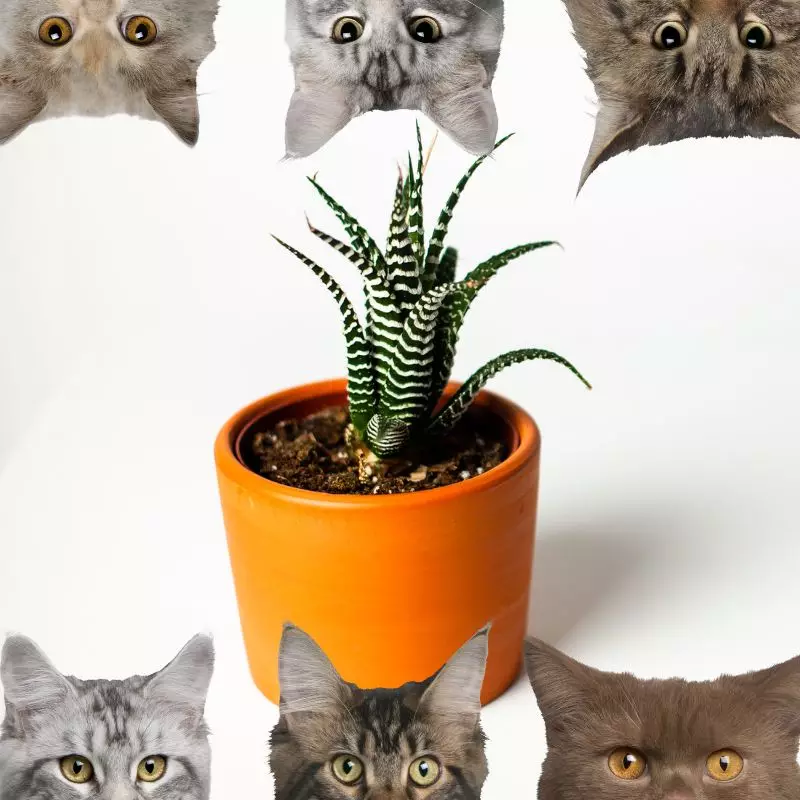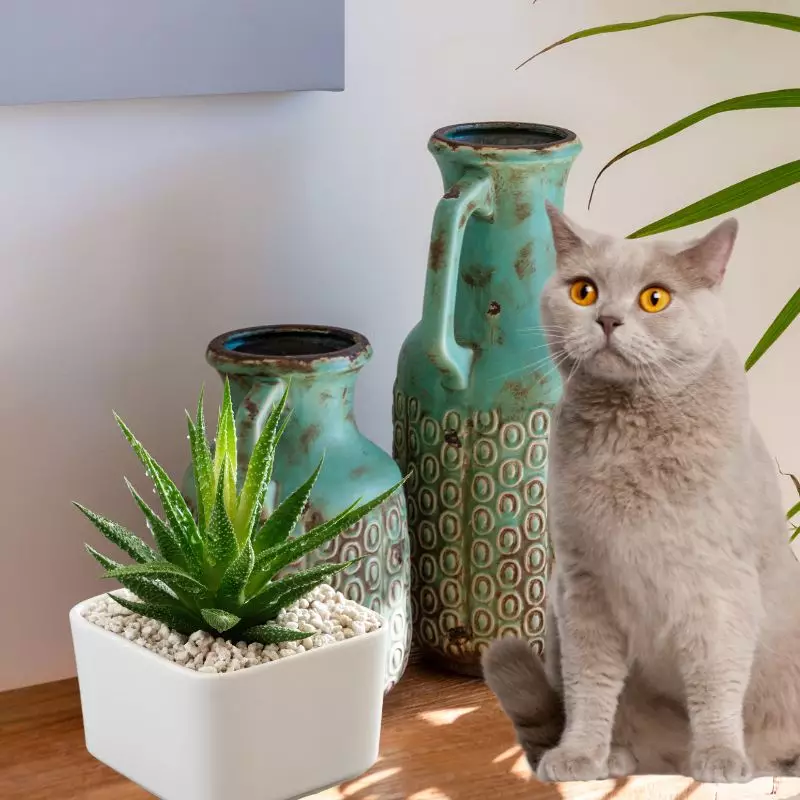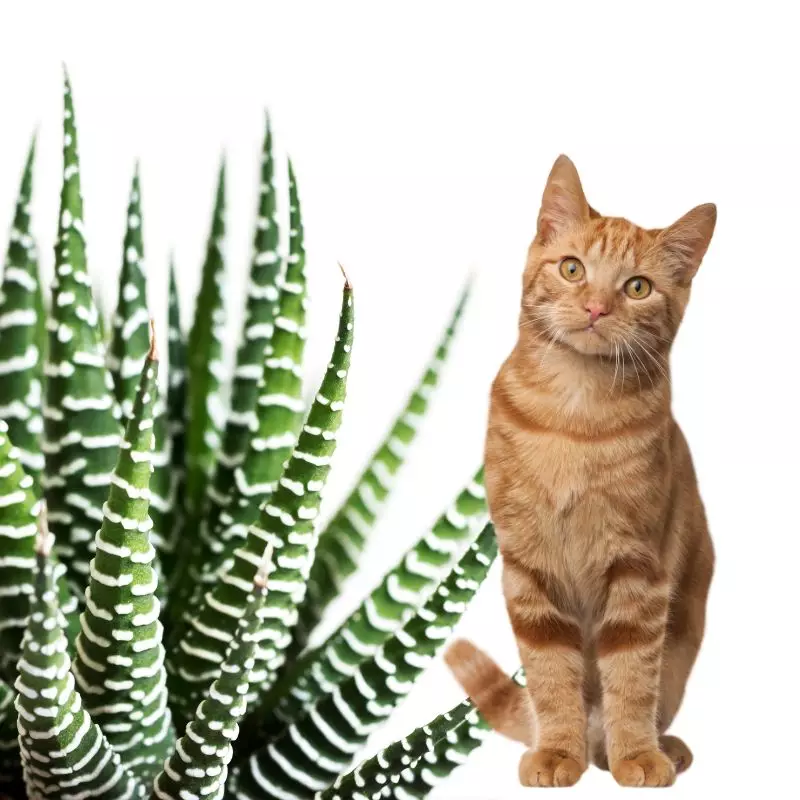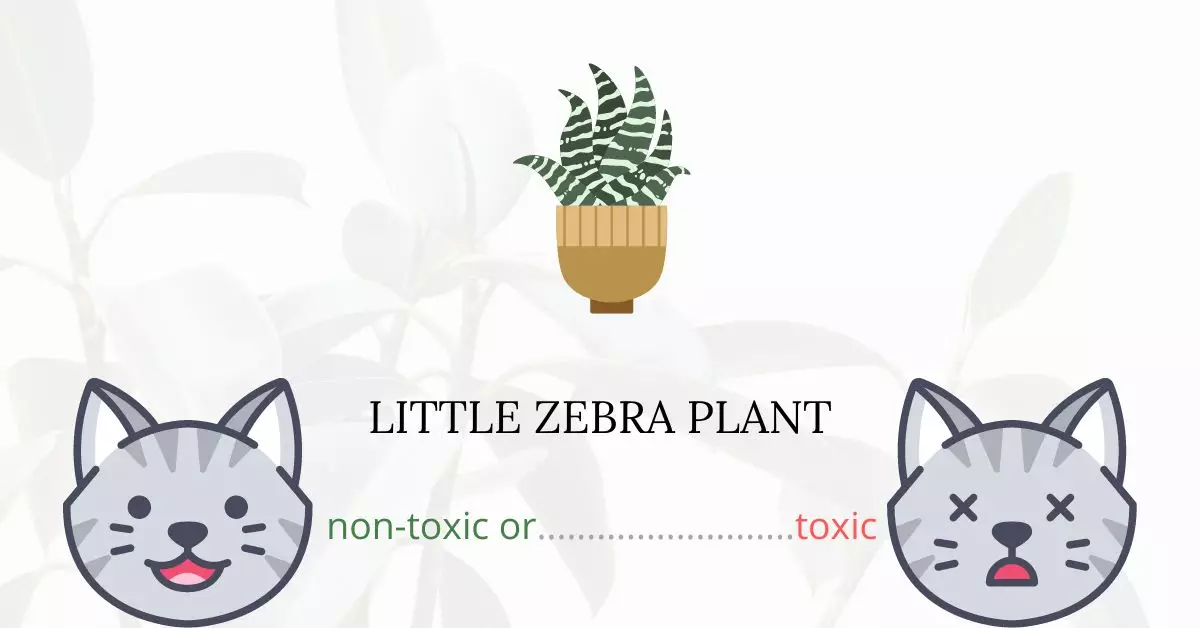The Little Zebra Plant is not toxic to cats. However, while the plant itself isn’t inherently harmful, consumption of it by felines may not be advisable.
This article has been crafted in collaboration with a team of experienced DVMs (doctors of veterinary medicine). Through their expert contributions, we offer accurate and current insights into the potential risks of various plants, focusing on the Little Zebra Plant in this instance, and their effects on cats. In addition to our veterinary expertise, we have consulted high-authority websites such as the ASPCA and PetMD to ensure comprehensive and trustworthy information.
Therefore, while the Little Zebra Plant can safely beautify your home, cat owners should exercise caution to ensure their feline companions do not ingest it.
Can Cats Eat Little Zebra Plant?

Small amounts of the little zebra plant wouldn’t cause any issues to your cats. But, even though the small zebra plant is thought to be non-toxic to cats, you should always be aware that ingesting any kind of plant can cause nausea, vomiting, diarrhea, or constipation.
This is particularly valid if your cat frequently eats houseplants. In sufficient amounts, any substance, food or not, can cause stomach distress. If you have a cat or cats who are renowned plant snackers, you should always try to keep houseplants out of your cats’ reach.
What is a Little Zebra Plant?

Originally from South Africa, the little zebra plant is a diminutive, uncommon, succulent houseplant. This member of the Aloaceae Family is also known by other names like Zebra Haworthia, and Zebra Plant. It is scientifically called Haworthiopsis fasciata.
The little zebra plant has linear, rigid, opaque leaves which have appealing white spots on the undersides, and is tiny in size.
Although the Little Zebra Plant grows slowly, it can live for up to 50 years. These plants are typically discovered buried in sand and flourish in extremely hostile environments in the wild. They are simple to grow for gardeners and demand a soil mixture with good drainage.
Keeping Cats Away From Little Zebra Plant

If you enjoy indoor gardening and decorating, you might want to put your plants in open or closed terrariums to keep them secure from your cats. Additionally, check to see if they are sturdy and heavy enough to prevent tipping over by your cats.
You can spray your plant with a variety of pet-repellent sprays without causing any harm to it or the pet without buying them from a pet store or nursery.
With vinegar, orange, lemon, cayenne pepper, or chili pepper, you may also prepare a few at home. Sprinkle pepper on your plants, or even better, combine pepper with water and spray it on them.
Citrus fruits can be used in a similar way; simply use diluted lemon juice, orange juice, or white vinegar. If you have access to essential oils, add 12 to 15 drops of oil to your spray container along with 3/4 part water (pets absolutely detest the scents of peppermint, eucalyptus, lavender, and lemongrass). Shake well before using. The process might need to be repeated two to three times per month as the odor will eventually go away.
Plants to Avoid For Your Cats
If you are a cat owner and unsure if the plants growing in your yard are harmful to your cats, check out this list of toxic plants for cats. You can also check our list of non-toxic plants for cats.





